|
|
|
|
As the last line of defence against the abuse of power by government, the role of the judiciary is always under scrutiny. This week we published articles that explore this, the need for transparency in how judges are appointed and the risks of judicial overreach. In Kenya, it became clear during the search for a new head of the judiciary that some members of the Judicial Service Commission were opposed to the prospect of judicial activism. Muthomi Thiankolu explains why this approach makes some people uncomfortable, though it’s supported by Kenya’s 2010 constitution.
Lesotho’s Judicial Service Commission has also started to recruit judges for its High Court. In a new, more transparent process, the commission decided to recommend candidates on the basis of merit. Previously, the basis of appointments was often obscure and it produced judges in whom the public had little confidence. Hoolo ‘Nyane argues that this is just the start of what needs to be done to reform the country’s legal system, including reducing the executive branch of government’s powers over the judiciary.
In South Sudan, the opposite has apparently become a problem: Chief Justice Chan Reec Madut has been encroaching on the executive’s domain. Mark Deng explains why the separation of powers matters and where the consequences of blurring the lines are evident in the country: eroding the rule of law and curtailing citizens’ rights and freedoms.
The uneven distribution of COVID-19 vaccines has been causing increasing consternation as the world watches some countries inch their way towards normality, while others, such as India, fall off the cliff in terms of infections and fatalities. In the wake of this, the call for the World Trade Organisation to lift patents and trademarks on products required to fight COVID-19 has grown louder. The campaign got a fresh boost this week when the White House said it backed a vaccine waiver. But it’s also become clear that such a move on the part of the WTO would not be a magic bullet. Erin Hannah, James Scott, Silke Trommer and Sophie Harman warn
that the US announcement marks the start of the battle, not the end of the war, while Enrico Bonadio and Filippo Fontanelli set out what hurdles would still remain.
Over the next few weeks we’re asking readers to make a donation to The Conversation Africa. We are a not-for-profit newsroom supported by donors. But we’re constantly looking for ways to expand our funding base in our quest for sustainability. Support journalism that you can trust.
Donate
now
|
Julie Masiga
Peace + Security Editor
|

|
|

Kenya’s 2010 Constitution expressly permits judicial activism but many in government are opposed.
bernie_photo/iStock/Getty Images Plus
Muthomi Thiankolu, University of Nairobi
The issue of whether judges should exercise judicial activism or judicial restraint revolves around the doctrine of separation of powers and the proper remit of judicial power in a democracy.
|
|
|
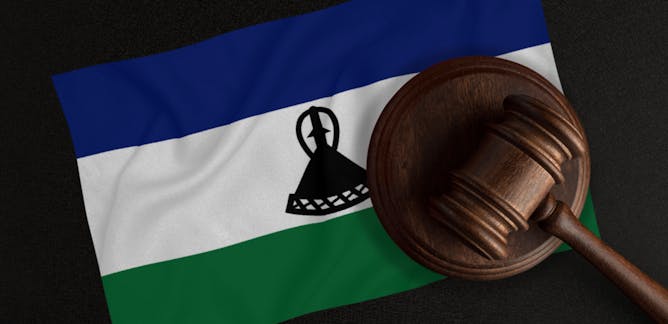
Hoolo 'Nyane, University of Limpopo
The appointment of judges has hitherto been an obscure and oftentimes clandestine affair. This has produced incompetent judges and led to claims that the judiciary is beholden to the executive.
| |

Mark Deng, The University of Queensland
The actions of the chief justice undermine the independence, impartiality and competence of the judiciary, which erodes public confidence in the courts.
|
|
|
|
|

Erin Hannah, Western University; James Scott, King's College London; Silke Trommer, University of Manchester; Sophie Harman, Queen Mary University of London
Much remains to be resolved before the waiver is translated into increased vaccine supply.
| |

Enrico Bonadio, City, University of London; Filippo Fontanelli, University of Edinburgh
Waiver talks might convince companies to focus on technology transfer and training, and let go of the plan to maximise patent-based revenues.
|
|
|
Arts, Culture + Society
|
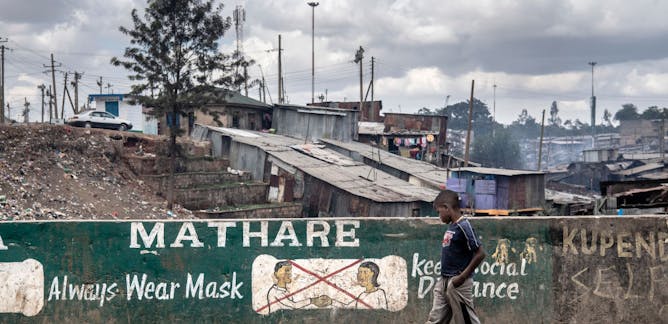
Melissa Wanjiru-Mwita, Technical University of Kenya
Residents of Nairobi's informal settlements use names as a way of voicing the issues that they struggle with every day.
| |

Oludayo Tade, University of Ibadan
Poverty aside, cultural factors like the influence of hip hop songs may also play a role in making a life of cybercrime attractive to young people.
|
|
|
|
|
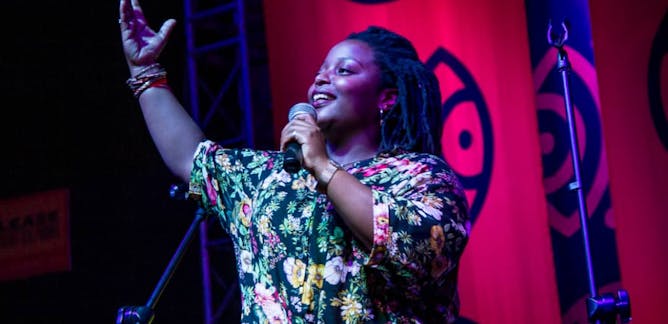
Amanda Källstig, University of Manchester
Despite the challenges of being a female comedian, the women who do choose to perform feel emboldened to speak out in ways that can resist sexism.
| |
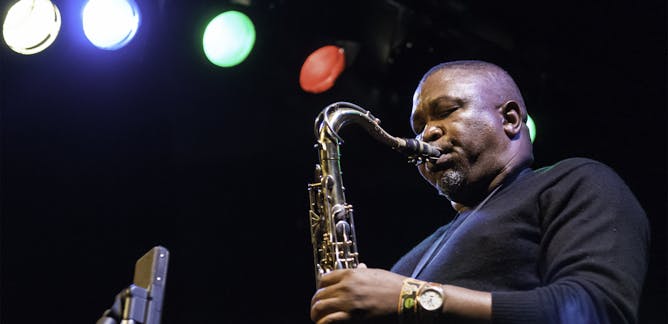
Lindelwa Dalamba, University of the Witwatersrand; Phillippa Yaa de Villiers, University of the Witwatersrand
Despite devastating setbacks like his studio being vandalised, the saxophonist and teacher believed that music can heal - part of a vision that shaped a future generation of jazz artists.
|
|
|
Business + Economy
|
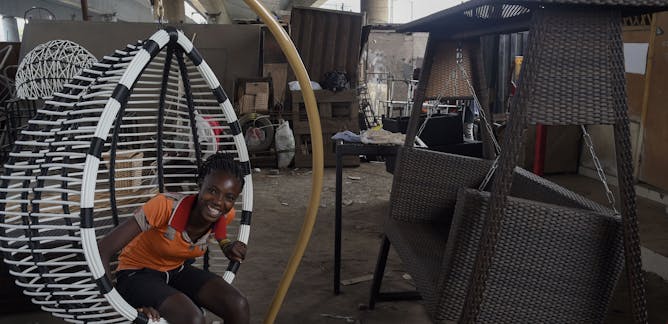
Babatunde J. Omotosho, Federal University, Oye Ekiti
Nigerian small business owners highlight the factors that limit full potential of social media use in commerce.
| |

Michael E Odijie, UCL
EU trade partnership is more important to some African countries than regional or continental trade.
|
|
|
Politics
|
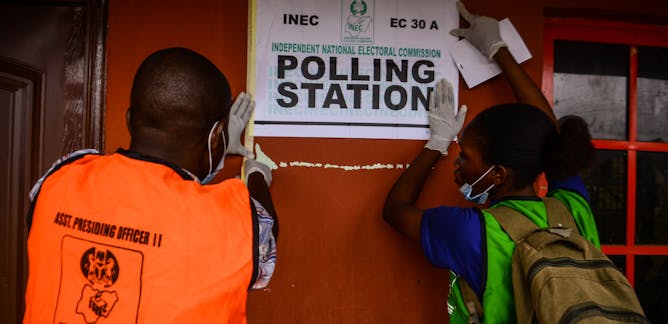
Emmanuel Remi Aiyede, University of Ibadan
Nigeria must fix its electoral system before the next general elections in 2023
| |
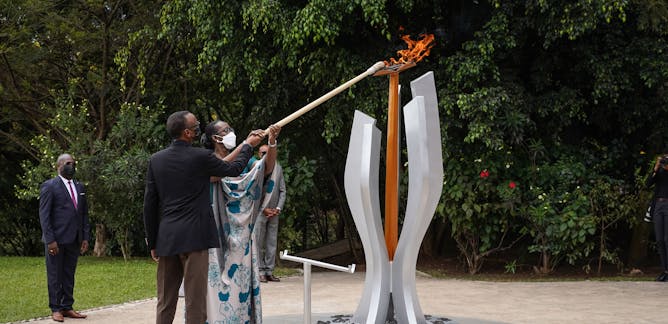
André Guichaoua, Université Paris 1 Panthéon-Sorbonne
A survey of the commemorations since 2014 reveals the politicking behind the writing of history and Rwanda's place in the world.
|
|
|
Health + Medicine
|
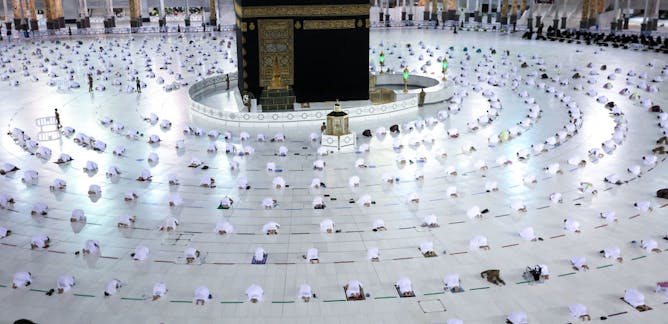
Ahmed Kalebi, University of Nairobi
Entertainment, sports and tourism industries can learn valuable lessons from how Saudi Arabia managed the annual pilgrimage during a pandemic.
| |
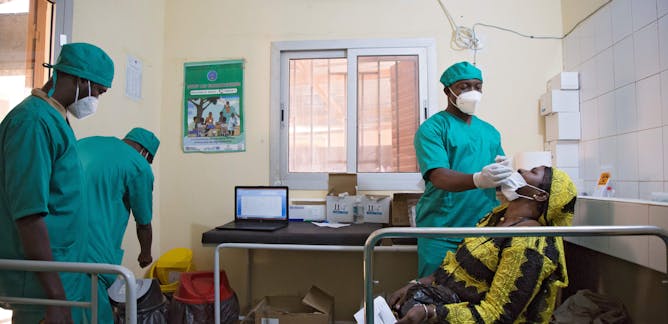
Burtram C. Fielding, University of the Western Cape; Dewald Schoeman, University of the Western Cape
Deficient leptin levels caused by malnutrition might protect against severe COVID-19 and related death. This could be another reason for the lower than expected COVID-19 deaths in Africa.
|
|
|
| |
Featured events
|
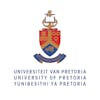
|
Future Africa, Pretoria, Gauteng, 0083, South Africa — University of Pretoria
|

|
MS Teams, Western Cape, 7600, South Africa — Stellenbosch University
|

|
Zoom, online, Zoom, online, Gauteng, Zoom, online, South Africa — University of Pretoria
|
|
|
|
| |
| |
| |
Would you like to republish any of these articles?
|
|
It’s free to republish, here are the guidelines.
Contact us on africa-republish@theconversation.com in case you need assistance.
|
| |
| |
| |
| |
|
|
|
|
|
|
|